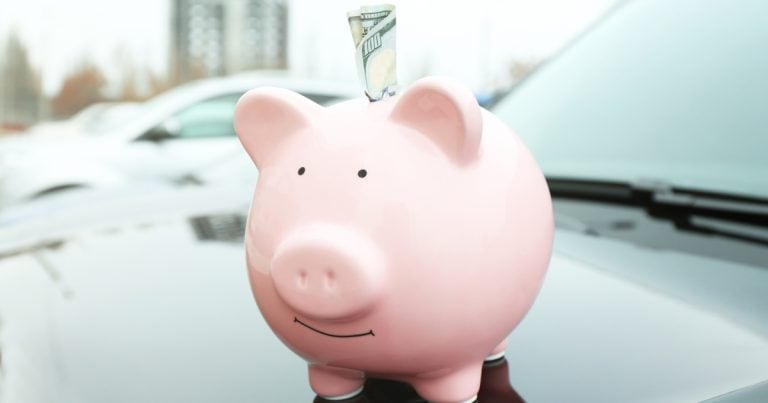20 Things You Need to Stop Buying If You Want to Save Money
I make money on some of the products and services I mention on Thinking Frugal through affiliate relationships. I never endorse a product or service unless I believe it will benefit my readers.
Are you looking for ways to save money? If so, you’re not alone. The economy has been tough on everyone lately, and it seems like the cost of living just keeps going up.
Saving money is important for several reasons. It can be helpful in the short term for everyday expenses and emergencies, as well as providing long-term financial security and stability. It also helps with budgeting and planning for larger purchases or events such as retirement, education costs, vacations, etc. Saving money also means having more freedom to do things you wouldn’t otherwise have the opportunity to do.
So, how can you save money? One way is to stop buying certain things that can take a big bite out of your budget.
In this blog post, I will discuss 20 things that you should stop buying in order to save money. Hopefully, this will help you get your finances in order and start making some headway on your savings goals, along with putting more money in your pocket.
Make an Extra $100+ Per Month for Free:
Earnably: Earn gift cards or PayPal cash to watch videos, complete surveys, and more.
GrabPoints: Earn money watching videos, completing surveys, downloading apps, and more.
Ibotta: Get paid to shop.
InboxDollars: Get paid to watch videos, shop, complete surveys, and more.
InstaGC: Earn gift cards, or PayPal cash by watching videos, taking surveys, shopping, and more.
Swagbucks: Earn gift cards, or PayPal cash by watching videos, taking surveys, shopping, and more.

Things to Stop Buying to Save Money
1) Name Brands
Shopping without buying brand-name products can be a great way to save tons of money. Shopping for generic or off-brand products is often just as good as the more popular brands, and most people don’t even notice a difference in product quality.
Brand-name products can be a waste of money because they often come with inflated prices that don’t reflect the quality of the item.
2) Car Washes
Washing a car at home instead of going to a car wash can be an excellent way to save money. Not only are the supplies that are needed less expensive than those used at an automated car wash, but there is no fee associated with getting your hands dirty and doing it yourself.
Plus, beyond dollars and cents, you can take pride in having worked hard on your vehicle to make sure that it looks its best.
3) Cable TV or Satellite
Cutting the cord and getting rid of cable or satellite tv service is becoming more popular than ever due to streaming services like Netflix and Hulu, which offer a wide variety of streaming content at a fraction of the cost.
With streaming services, you can enjoy all your favorite shows without having to pay for any equipment rentals or installation costs that come with cable and satellite packages. You will also save money in the long term since streaming services usually offer much lower per-month prices when compared to their cable or satellite counterparts.
4) Greeting Cards
With the demand for convenience always increasing, many people purchase pre-made cards to send their greetings or show expressions of affection. However, these store-bought cards can be fairly pricey, and the money could be better spent on something more useful than paper with words printed on it.
Making your own cards is a great way to save money while still sending heartfelt messages to loved ones. With just a few supplies, such as cardstock, markers, pens, stamps, and other crafts you can find at a discount store, you can make thoughtful greeting cards that will not break the bank.
5) Extended Warranties
When you’re out shopping for a new product, it can be tempting to pick up an extended warranty on the spot, but in most cases, these added warranties are a complete waste of money. In-store extended warranties almost always require a direct payment at the time of purchase or else monthly payments tacked onto your credit card.
Instead of shelling out extra money, it is best to simply keep an eye on your product’s manufacturer’s warranty and utilize that instead if something happens down the line.
Be sure to save yourself extra cash and refuse those in-store warranties. You won’t miss it.
6) Bottled Water and Beverages
Buying a reusable water bottle and refilling it using your tap water is much more cost-efficient than buying bottled water at the grocery store.
Bottled water is often sold at prices that are significantly higher than the cost of tap water, making it an expensive purchase that adds up quickly over time. Not only can it cost you extra money, but bottled water also contributes to mountains of plastic waste that harm our environment.
Additionally, the costs add up even faster when it comes to other beverages like sodas, juice boxes, and energy drinks in addition to being unhealthy.
7) Food Delivery
Eating at home is a simple way to save money that often gets overlooked. Making simple meals at home instead of getting take-out delivered will quickly result in cost savings.
Groceries can often be purchased in bulk and stored to use across multiple meal preparations, reducing the overall cost spent. You also don’t have to worry about any additional fees for delivery or tips required with take-out. Making simple meals at home instead of ordering out is a simple way to save money.
8) Magazines or Books
Buying new magazines and books every time is a waste of money when library cards, which are often available without any sort of membership fee, offer access to the same books and magazines at no cost.
Not only is getting books and magazines from your local library significantly cheaper than buying them outright, but library resources also provide an affordable way to enjoy learning materials without wasting your hard-earned money.
9) New Clothing and Shoes
Shopping for new clothes and shoes can be an extremely expensive endeavor. Most retail stores offer great deals at certain times of the year, but even then, it’s easy to end up spending a great deal of money.
Thrift stores, on the other hand, are great places to hunt for clothes and shoes for a fraction of their original price. This can be especially helpful if you are looking for unique items or clothing from past seasons that are now out of style.
Unfortunately, buying new clothes and shoes might be unavoidable in certain cases; however, great deals can still be found with some creativity and resourcefulness.
10) Lottery Tickets
The idea of becoming an overnight millionaire may be appealing, but buying lottery tickets regularly is a waste of money. The odds of winning the lottery are incredibly slim, making it unwise to expect that spending money on tickets will result in substantial financial rewards.
Buying nothing but lottery tickets is an irresponsible way to go about managing your finances, and the chances of getting any return on the investment are practically nothing.
To be smarter with your hard-earned cash, stop buying lottery tickets and invest it in more fruitful ventures.
11) Bank Fees
Paying too much money in bank fees can be a huge waste of your hard-earned cash and can really add up fast.
Switching to a bank with no fees is an easy way to save some money. Fees can come in many unrecognizable forms, such as monthly service charges, ATM withdrawal fees, and overdraft fees.
By understanding the bank fees associated with your bank account, it is possible to spare yourself from spending money needlessly by opting for an account one that better suits your needs.
12) Paper Towels and Napkins
Buying paper towels and napkins can seem like a must-have for many consumers, but it can actually be an expensive waste of money.
Cloth alternatives, such as cloth napkins and dish towels, are much cheaper, last longer, and can even be reused multiple times.
The upfront cost may be a bit more, but the lifetime value of cloth products is significantly higher than that of paper-based options.
13) Eating Out
Eating out regularly may seem economical in the present moment, but small purchases can add up to a small fortune over time. Restaurants usually inflate the prices of their food, with many dishes costing twice what it would to actually cook it at home.
While it is certainly enjoyable and convenient to eat out from time to time, making a habit of doing so can quickly become expensive.
14) Single Serving and Convenience Foods
Buying single-serving and convenience foods from the grocery store may seem like an easy way to feed yourself or your family, but it can be a serious waste of money.
Single-serving foods are often more expensive than their larger counterparts. For example, a small package of chips can cost twice as much as a large bag.
The convenience of single-serving foods may be attractive, but it can eventually lead to higher costs and a waste of money.
15) Tobacco and Alcohol
Buying tobacco and alcohol can be a huge financial burden due to their steep price markups, and when you factor in the frequent need for restocking, it becomes all the more expensive.
Buying tobacco and alcohol products is not only costly but also detrimental to your physical health. Therefore, it is safe to say that spending your hard-earned money on these items is nothing more than a waste of resources.
16) Takeout Coffee
Buying takeout coffee from popular coffee shops like Starbucks can really start to add up. A regular cup of coffee from Starbucks is around $2, which may not seem like a lot at first glance, but if you buy one every day, that quickly adds up to over $700 per year. Factors such as frequency, specialty drinks, and location will all contribute to the cost.
Heading into a city or tourist area? You can expect that the cost of a cup of coffee will be more expensive. Most of us don’t think twice about grabbing our daily cup of joe, but it’s important to be aware of how much money we are spending, no matter how little it may seem at the time.
17) Impulse Buys
Impulse buying can be a costly activity. It often involves making a purchase without taking the time to weigh the financial or practical implications. It is incredibly tempting if something is on sale because these discounts can make it hard to resist. But it’s important to remember that impulse buys are rarely essential and that spending money for the sake of it could lead to financial consequences.
Impulse buying could consequently lead to debt, bringing stress and unease. It also means being wasteful with your money, as impulse purchases won’t bring you material or intangible returns; they’re just wasted cash that you’ll never get back.
18) New Cell Phones
Many people like to stay up to date with the newest technology, so they buy new cell phones every couple of years when the latest models become available.
Keeping a cell phone for years until it goes kaput is much more cost-effective than replacing it every couple of years. Not only are new cell phones incredibly expensive, but so are the service plans. The longer you hold onto your phone, the more you save on the initial purchase and subsequent service fees.
Simply put, not purchasing a new phone every two years saves hundreds if not more, in both upfront costs and potential long-term savings.
19) Plastic Bags
Rather than continually buying resealable plastic bags, it’s a much better idea to invest in reusable storage containers. Reusable storage containers can be used for a variety of purposes, from packing for camping trips or picnics to keeping your snacks or lunch in.
They come in all shapes and sizes, making them multipurpose and great for all sorts of food items, from sandwiches and leftovers to crackers and chips.
20) Disposable Utensils and Plates
Buying disposable plastic utensils and paper plates may seem like an easy and inexpensive way to host a gathering, but it doesn’t come without a cost. Not only are these items more expensive in the long-term than investing in good quality reusable materials, but they are incredibly damaging to our environment.
Final Thoughts
The easiest way to save money is by stopping the purchase of unnecessary products and services. While this may seem difficult at first, it can be a great way to cut costs and put more money back into your pocket for more important things.
Pivoting towards a more mindful approach to spending can immensely impact your financial well-being. You can positively impact your wallet by making small changes in your spending habits.
Once you start seeing the money saved by cutting out these unnecessary purchases that you don’t really need, it’s likely that those things will be forgotten quickly.







